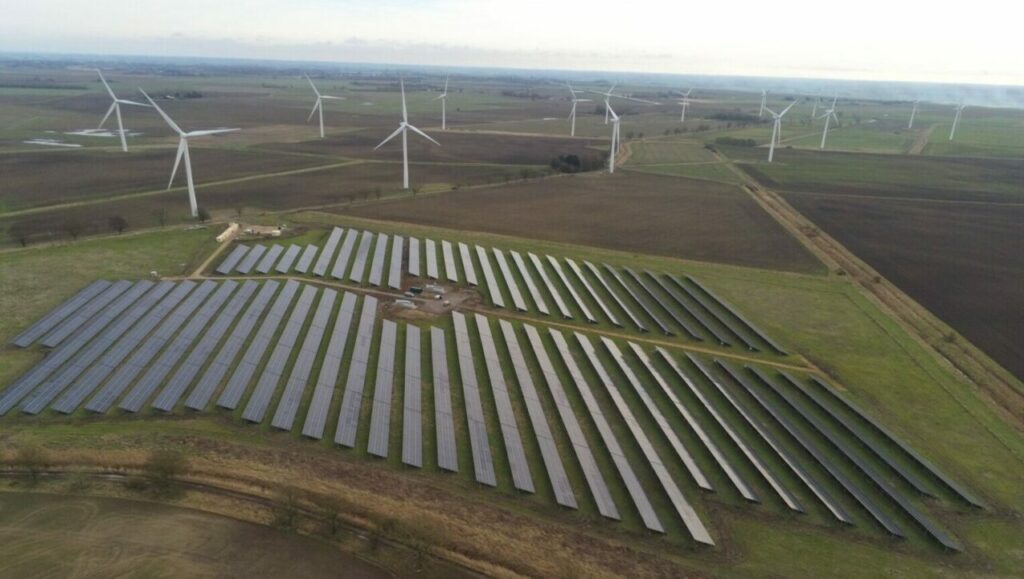
In the last month, the Co-operative Group has announced two partnerships with solar energy companies to provide clean electricity for its properties.
The first was what the firm calls a “major partnership” between the Midcounties Co-operative and Big Solar Co-op, which will see this installation of solar panels across 29 food, travel, childcare, and head office sites.
These solar modules will aim to provide sufficient renewable electricity to deliver around 5% of the business’s electricity needs.
The partnership with Big Solar Co-op will also reduce energy costs, cutting electricity bills by approximately £180,000 annually by generating over 1.5 million kW of electricity per year.
Mike Pickering, head of sustainability at the Midcounties Co-operative, said: “By integrating solar power generation into our operations, we are not only reducing our carbon footprint, but we are also furthering our commitment to building a fairer, more sustainable and ethical future.”
More recently, the Co-op, as a wider group, signed a Power Purchase Agreement (PPA) to use the clean energy produced from ScottishPower Renewables’ Coldham solar farm in Cambridgeshire.
Under this agreement, the Co-op will purchase 100% of the electricity produced by over 19,000 solar panels at ScottishPower’s 9MW site.
The Coldham solar farm has been developed as part of ScottishPower Renewables’ organic pipeline. It’s co-located with SPR’s existing Coldham wind farm and benefits from the site’s existing efficiencies in terms of land, grid connections, and other operating elements.
“The launch of Coldham solar farm, as a result of our PPA with ScottishPower Renewables, shows the Co-op’s commitment to achieving net zero,” said Shirine Khoury-Haq, the Co-op’s chief executive.
“We maintain that the Government should make decarbonising the grid a top priority. However, businesses still have their part to play, and this solar farm is a further step in Co-op’s approach to renewable energy procurement through a mixture of PPAs and embedded generation.”
ScottishPower Renewables will be supplying Co-op with a peak capacity of 9MW of clean energy – which is enough to power the equivalent of roughly 55 Co-op food stores.
Charlie Jordan, CEO of ScottishPower Renewables, said: “We are delighted to partner with companies that understand the importance of decarbonising their operations. By securing long-term commitments, PPAs provide stability, certainty, and ultimately accelerate our journey towards a greener, more resilient energy landscape.”
Co-op’s ventures
These agreements follow previous, similar arrangements, including the company’s decision to sign a 15-year Corporate PPA with renewables developer Voltalia for the entire output of the 34MW Eastgate solar farm.
This recent deal, announced in November 2023, will see Eastgate solar farm help power the consumer co-operative’s estate, which includes food stores, distribution centres and Funeralcare homes across the UK.
Early construction of the 62,500 solar panel farm located near Scarborough in North Yorkshire has already begun, and the asset is expected to begin operations in 2025.
Once fully operational, the solar farm’s maximum capacity is expected to provide enough electricity to supply up to 7.5% of Co-op’s total electricity needs per year.
Just a month earlier, in October 2023, it was announced that the Co-operative established Ripple Energy is set to own and operate 20% of an Eden Renewables solar project.
Eden Renewables, a clean energy developer, submitted a planning application to the Wiltshire council for a 40MW alternating current (AC) solar farm east of Kington St. Michael, Wiltshire.
The site, now named the Red Barn solar farm, is the first renewable site in Wiltshire to function with this type of agreement.
Similar to Ripple Energy’s other co-ownership projects, local residents of the site will be given preference to buy shares in the Co-op for a minimum of £25 to be in line to save an estimated 25% on their electricity bills (proportionate to their shareholding).

